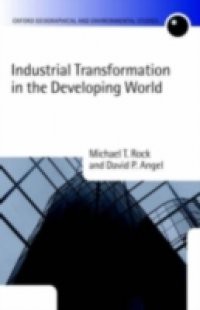'Grow first, clean up later' environmental strategies in the developing economies of East Asia - China, Korea, and Taiwan in Northeast Asia and Indonesia, Malaysia, the Phillippines, Singapore, Thailand and Vietnam in Southeast Asia - pose a critical regional and global sustainability challenge in this area of continuing rapid urban-based industrial growth. It is the most polluted region in the world. Whilst being at the leading edge of the processes of urbanization, industrialization, and globalization these economies are in the midst, not at the end, of their urban-industrial transformations. During the next 25 years urban populations in the region are expected roughly to double, and most of the industrial capital stock that will be on the ground by 2030 has not yet been built. Given East Asia's growing size in the world's economy and ecology, and its increasingly polluted environment,this looming urban-industrial transformation is both a challenge and an opportunity. Unless steps are taken now to make this transformation more sustainable, East Asia's, and the world's, environmental future is likely to deteriorate seriously. Using detailed case studies and rigorous empirical analyses Rock and Angel, leading experts in this field, show that East Asian governments have found institutionally unique ways to overcome the sustainability challenge. As a result of these findings, they demonstrate how even low income economies in the rest of the world can use regulatory polices, industrial policies, and an openness to trade and foreign investment that will increase the competitiveness of their firms whilst improving theirenvironmental performance, thus proving an important antidote to those who argue that poor countries cannot afford to clean up their environment whilst their economies remain under-developed.

